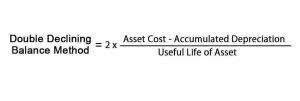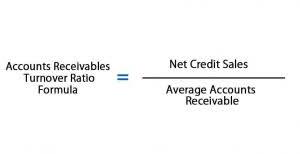
The farther the distance between the FOB point and the final destination, the higher the shipping costs for the buyer. Understanding this impact is essential for businesses looking to optimize their supply chain and reduce transportation expenses. Understanding FOB is essential because it helps both parties determine ownership, outline who is responsible for transportation costs, and specify who files claims if goods are damaged en route.
Free Container Shipping Cost Calculator
One of the primary advantages of FOB Destination is that the seller assumes more responsibility for the goods during transportation. This can be particularly beneficial if the goods are fragile or expensive, as the seller is typically more experienced in handling and transporting them. However, the seller also has less control over the transportation fob shipping point process and may be subject to higher shipping rates. Additionally, FOB Destination may not be possible if the seller is located far from the buyer or if the buyer requires expedited shipping. If you’re involved in the world of freight shipping, you may have heard the terms FOB Shipping Point and FOB Destination thrown around.
- FOB terms are typically included in shipping orders and contracts, detailing the time and place of delivery, payment terms, and which party handles freight costs and insurance.
- Cost, Insurance, Freight (CIF) puts the liability of payment for – you guessed it – cost, insurance, and freight on the supplier.
- At this point, the legal title, the rights that come with that title, and risk of loss passes from seller to buyer.
- Since the seller is responsible for arranging transportation, the buyer can choose the carrier and shipping method that best suits their needs.
- Incoterms apply to both international trade and domestic trade, as of the 2010 revision.
- It means that a seller pays for all shipping costs and that a transaction is not complete until the goods reach the buyer’s destination undamaged.
Importance of FOB Location

Hopefully, the buyer in this example took out cargo insurance and can file a claim. Due to agreed FOB shipping point terms, they’ll have no recourse to ask the seller for reimbursement. Wise connects local bank accounts all over the world to cut out expensive international fees.
Additional Shipping Terms
- The fitness equipment manufacturer is responsible for ensuring the goods are delivered to the point of origin.
- The term “FOB” was used to refer to goods transported by ship since sea transport was the main method of transporting cargo from far countries.
- As opposed to “delivered”, which means that the seller bears all risks and costs until the goods get to the buyer’s destination.
- Known as Incoterms, these terms are published by the International Chamber of Commerce (ICC) to help navigate the complexities of international trade and differing country laws.
- If you agree to FOB shipping point terms, remember to factor in the costs of shipping and import taxes to your location when negotiating price.
As such, FOB shipping means that the supplier retains ownership and responsibility for the goods until they are loaded ‘on board’ a shipping vessel. A common mistake is to use FOB (Free on Board) Incoterms® for containerised goods instead of using a rule for all transport modes. Under FOB, the risk is officially transferred when the cargo is loaded onboard the vessel. However, it is common practice for the shipper to hand over the cargo to the carrier at the terminal where it awaits to be loaded onto the vessel. Instead, use FCA (Free Carrier), CPT (Carriage Paid To), and CIP (Carriage and Insurance Paid To), which are the correct alternatives as they are meant for containerised freight.
Are Free on Board Incoterms® the same as Freight on Board Incoterms®?
- In modern domestic shipping, the term is used to describe the time when the seller is no longer responsible for the shipped goods and when the buyer is responsible for paying the transport costs.
- It’s the cornerstone that defines who pays for shipping costs, who assumes ownership, and where responsibility begins and ends between a buyer and seller.
- This means that once the goods are loaded onto a carrier at the seller’s facility, they become the buyer’s responsibility.
- When using FOB Shipping Point or FOB Destination, it is important to comply with all legal requirements and regulations.
- This knowledge lets both parties make informed decisions regarding insurance coverage and shipping arrangements.
- Only when the purchase arrives in perfect condition does the buyer accept it and consider the sale officially complete.
For FOB Origin, after the goods are placed with a carrier for transport, the company records an increase in its inventory and the seller records the sale. For FOB Destination the seller completes the sale in its records once the goods arrive at their final destination, and the buyer records the increase in its inventory at that time. FOB shipping point holds the seller liable for the goods until they’re transported to the customer, while FOB destination holds the seller liable for the goods until they have reached the customer. Choosing the right FOB term can significantly impact your business operations, financial records, and risk management, so consider these factors carefully. The buyer is not responsible for the goods during transit; therefore, the buyer often is not responsible for paying for shipping costs. The buyer is also able to delay ownership until the goods have been delivered to them, allowing them to do an initial inspection prior to physically accepting the goods to note any damages or concerns.
Transfer of Ownership
For example, assume Company XYZ in the U.S. buys computers from a supplier in China and signs a FOB destination agreement. Assume the computers were never delivered to Company XYZ’s destination, for whatever reason. The supplier takes full responsibility for the computers and must reimburse Company XYZ or reship the computers.

- If anything happens to the goods on any leg of the journey to the buyer, the supplier assumes all responsibility.
- Several factors can affect the efficiency of an FOB warehouse, including its location, size, capacity, and infrastructure.
- In this case, the seller is responsible for loading the goods onto the carrier and arranging for transportation.
- This means that if the goods are damaged or lost during transit, the seller is responsible for filing a claim with the carrier or their insurance company.
- The term “shipping point” might seem straightforward, but when paired with FOB, it takes on a much more nuanced meaning.
In North America, the term “FOB” is written in a sales agreement to determine when the liability and responsibility for the shipped cargo transfers from the seller to the buyer. When it is indicated as “FOB Origin,” it means that the transfer occurs at the seller’s shipping dock when the goods are safely on board the ship. Determining the right FOB location is essential in minimizing shipping costs and ensuring smooth logistics operations.
Tips, news and updates for your location

